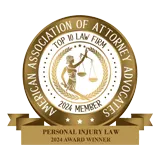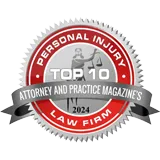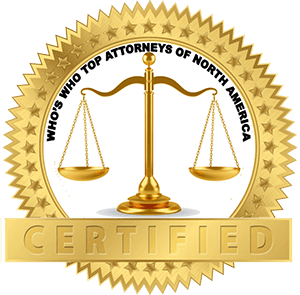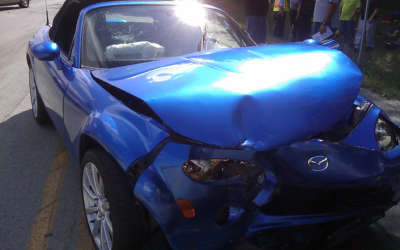How to Get an Insurance Settlement After a Wisconsin Car Accident
When you’ve been injured in a car accident, you’re probably concerned about the insurance settlement, especially if you can’t work and medical bills are piling up. Unfortunately, getting fair compensation isn’t as simple as calling your insurance company and waiting for a check. The system is designed to favor insurance companies, who routinely delay legitimate claims, demand endless paperwork, and make lowball offers while hoping you’ll eventually give up.
While this situation is incredibly frustrating, you still have options. By reporting the auto accident promptly, documenting your losses, and hiring an experienced car accident lawyer, you stand the best chance of getting the car accident settlement you need.
What You Need to Know About Wisconsin’s Fault and Insurance Rules
- Wisconsin is a fault-based state for car accidents, so the at-fault driver’s insurance pays for your injuries and losses. This means you can file a claim directly with the other driver’s insurance company for medical bills, lost wages, pain and suffering, and property damage.
- Minimum liability coverage in Wisconsin is relatively low compared to many other states. Required coverage includes $25,000 for injury or death to one person, $50,000 for injury or death to two or more people, and $10,000 for property damage. Unfortunately, these limits usually aren’t enough for serious car crashes, making uninsured/underinsured motorist coverage important.
- The state follows a modified comparative fault rule (51% bar). Under this system, Wisconsin courts and insurance companies assign percentages of fault to each party involved in a crash. If you’re 50% or less at fault, you can recover damages, but they will be reduced by your percentage of fault. For example, if you’re 30% at fault for a crash and your total damages are $100,000, you can recover $70,000. If you’re 51% or more at fault, you can’t recover anything.
Issues like fault determination usually come later. To set the stage for a successful car accident lawsuit, take the steps outlined below.
Step 1: Report the Car Accident and Gather Evidence
Wisconsin law requires drivers to report car accidents that cause injury, death, or over $1,000 in property damage. Failing to do so can result in fines and may give insurance companies grounds to question your claim.
While waiting for the police to arrive, take the following steps:
- Call Law Enforcement: Get a police report because insurers will ask for it. The responding officer will document the scene, interview drivers and witnesses, and usually make a preliminary determination about fault. You can obtain a copy of this report from the investigating agency within a few days of the crash.
- Take Photos: Use your phone to capture all vehicle damage, street signs, traffic signals, and road conditions. Photos taken immediately after the auto accident provide the strongest evidence because they show conditions before cleanup crews or tow trucks alter the scene.
- Collect Witness Information: Independent witnesses can provide key testimony if fault becomes disputed later. Ask for their phone numbers, email addresses, and a brief written statement about what they saw.
- Document Details: Write everything down before you forget it. Record how the motor vehicle accident happened, what you were doing before impact, weather conditions, and any statements made by the other driver. Be sure to note whether anyone appeared to be texting, speeding, or driving erratically before the collision.
Step 2: Get Medical Attention
Even if you don’t think you’ve been hurt, see a doctor right away. Adrenaline and shock can mask pain immediately after a crash, and conditions like whiplash, concussions, soft tissue injuries, and even internal bleeding may take hours or days to show symptoms. An emergency room visit will also create a medical record linking your injuries to the auto accident.
Once you’ve been assessed and treated, be sure to:
- Follow Treatment Plans: If you miss appointments, stop treatment early, or ignore your doctor’s advice, insurance adjusters will argue that your injuries aren’t as serious as you claim. For this reason, continue treatment until your doctor determines that you’ve reached maximum medical improvement.
- Track Medical Expenses: Keep detailed records of all medical bills. Save receipts for emergency room visits, doctor appointments, physical therapy, prescription medications, and medical equipment. Don’t forget smaller expenses like over-the-counter pain relievers or ice packs.
Step 3: Notify Your Insurance Company
Most auto insurance policies require prompt notification of car crashes (typically within 24 to 72 hours). To avoid problems, check your policy for the exact timeframe and notification requirements to avoid giving your insurer grounds to deny coverage.
When you reach out, only provide the date, time, and location of the accident, the other driver’s information, and a basic summary of what happened. You’ll also hear from the at-fault driver’s insurer, which may pressure you to make a recorded statement. Fortunately, you have the right to delay giving a statement until you’ve had time to assess your situation and consult with a personal injury lawyer.
Step 4: Track All Damages and Losses
Insurance companies will only pay for damages you can prove with receipts, records, and other documentation. For best results, start collecting and organizing this information immediately after your motor vehicle accident to avoid missing important details or losing receipts. This means you should:
- Keep detailed records of all medical bills and prescription costs in a dedicated file or folder.
- Document all missed work days. Ask your employer for a letter stating your hourly wage or salary and the total time missed. If you’re self-employed, gather tax returns, bank statements, and other financial records showing lost income.
- Record mileage to medical appointments, as Wisconsin lets you claim mileage for travel related to your accident.
- Document repair or replacement costs for your car. Get estimates from reputable auto body shops, even if you don’t plan to repair your car immediately.
- Keep a daily record of your physical and emotional symptoms. This personal account helps demonstrate the ongoing impact of your injuries on your daily life.
Step 5: Hire Nowlan Personal Injury Law
If you’re seriously injured, the at-fault driver’s auto insurance provider may try to offer a lowball settlement to reduce their payout. When you have a personal injury lawyer advocating for you, that changes. Claims adjusters know that attorneys are aggressive negotiators who aren’t afraid to file a car accident lawsuit when necessary.
Your car accident lawyer will determine liability by hiring accident reconstruction specialists, reviewing witness statements, and gathering evidence like traffic camera footage. They can handle all communications with insurance companies, protecting you from saying something that might hurt your claim.
Most car accident attorneys in Wisconsin offer free consultations where they’ll review your case and explain your options. If you decide to hire one, they will typically work on a contingency fee basis, which means you don’t pay attorney fees unless you win a settlement or verdict. This arrangement allows injured people to hire experienced legal representation without upfront costs.
What if the At-Fault Driver Has No Insurance Coverage?
If the negligent driver has no insurance or not enough coverage, you may file a claim under your UM/UIM policy. Uninsured motorist coverage applies when the other driver has no insurance, while underinsured motorist coverage helps when their policy limits are too low to cover your damages fully.
These claims can still be challenging: your insurer isn’t guaranteed to treat you fairly just because you’re a policyholder. Insurance companies have a duty to investigate claims in good faith, but they still try to minimize payouts. They may dispute the severity of your injuries or the amount of compensation you’re seeking.
To make matters even more complicated, UM/UIM claims usually require arbitration if you and your insurance company can’t agree on a settlement amount. This arrangement involves presenting your case to a neutral arbitrator who makes a binding decision about compensation. Having strong medical documentation and legal representation becomes even more important in these situations.
What a Fair Car Accident Settlement Should Cover
Understanding what damages you can claim helps you evaluate settlement offers and fight for fair compensation. Initial offers may only cover basic medical bills, so knowing what types of compensation are available makes it less likely that you’ll accept a lower amount.
- Medical Costs: This includes emergency room visits, doctor appointments, hospital bills, surgeries, physical therapy, prescription medications, and ongoing treatment needs. Get documentation from your doctors about future medical needs to support claims for future care.
- Lost Income: Document not just the wages you’ve already lost, but also any reduction in your future earning capacity due to permanent injuries or limitations. This might require vocational specialists to assess how your injuries affect your career prospects and lifetime earnings.
- Pain and Suffering: You can seek compensation for physical and emotional trauma you’ve experienced. Wisconsin doesn’t cap pain and suffering damages in most car accident cases, so your personal injury attorney can demand maximum compensation for them.
- Property Damage: This includes vehicle repair or replacement as well as cell phones, laptops, clothing, or other belongings damaged in the accident.
- Loss of Enjoyment of Life: If you can’t play sports, pursue hobbies, or enjoy activities you once loved, you can demand financial compensation for the impact on your quality of life.
- Permanent Effects: Scarring or permanent impairment may entitle you to additional compensation, especially if these conditions affect your appearance, mobility, or ability to work. Document these conditions with photographs and medical reports detailing their permanent nature.
Your attorney will send a demand letter that takes all of these economic and non-economic amounts. During settlement negotiations, their goal is always to win the compensation you need to rebuild your life after a preventable accident.
Speak to Our Wisconsin Car Accident Attorney Today
Dealing with an insurance company while recovering from an accident can feel like an uphill battle. You’re hurt, stressed, and unsure if the amount they’re offering is fair. Insurance adjusters have years of experience minimizing claims, while you’re probably dealing with your first serious car accident. The playing field isn’t level, and insurance companies count on your inexperience to save them money.
At Nowlan Personal Injury Law, we’ve helped thousands of injured people recover the compensation they need to move forward. If you want answers and a clear plan for your claim, contact us for a free consultation. We’re ready to listen and take action. Our team has recovered over $74 million for accident victims throughout Southern Wisconsin, and we’re prepared to fight for every dollar you’re owed. For more information, please call our law firm at 608-478-5655.
Contact me today for a free consultation.


















